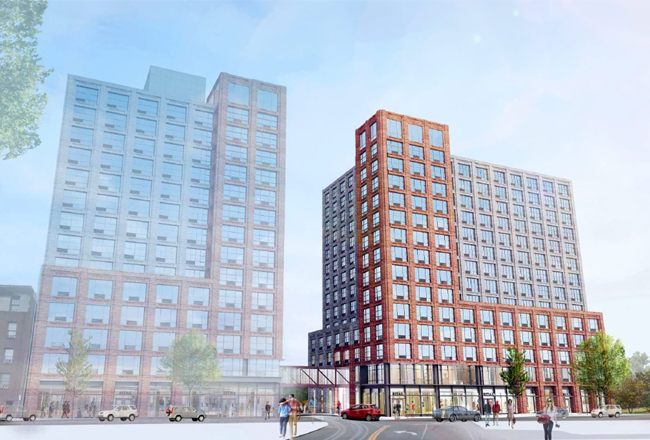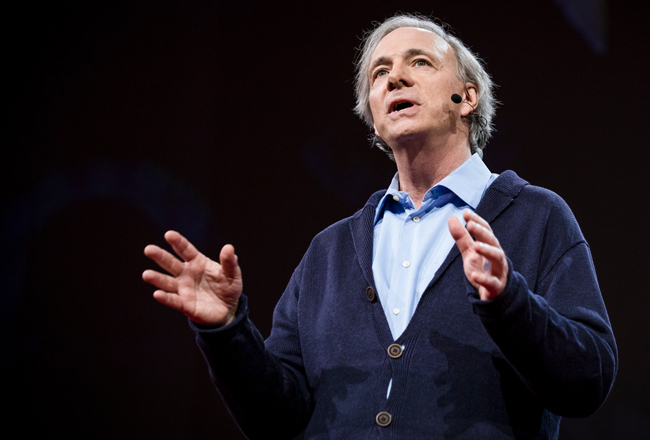The New Rochelle Industrial Development Agency (IDA) has endorsed $14 million in proposed tax relief for a $90.5 million apartment complex at Huguenot Street and Centre Avenue.
Huguenot Partners LLC wants to build two, 14-story buildings and a parking garage on two city-owned lots and a private lot.

The city Planning Board approved site plans last week and the IDA board gave preliminary approval for the public subsidies on Feb. 27.
Huguenot Partners is affiliated with DHA Capital LLC, a Manhattan firm that develops urban infill real estate projects in the region. Daniel Hollander is the managing principal. Corridor Holdings is listed on the IDA application as co-development partner.
The development is aimed at young professionals with no children, professional singles and college students, according to the application, as well as city residents who want better amenities and access to the nearby Metro-North train station.
The 285 apartments will be “fairly compact” by Westchester standards, Hollander told the IDA board, but larger than typical New York City apartments.
Ten percent of the apartments will be priced below market rates.
The project includes 13,000 square feet of retail space and a five-story parking garage with 259 spaces.
Huguenot Partners has budgeted $11.4 million for land. That includes more than $6.7 million for city parcels at 327 and 339 Huguenot St., $1.75 million for 33 Centre Street, and $1 million to clean up the Centre property. It will pay $851,340 to the Community Benefit Fund, for the right to build 14-story buildings instead of 12-stories.
The firm”™s cash flow analysis shows the project achieving a profit by year five, at more than $1 million or 3.5 percent yield, based on a market rent of $43.10 per square foot. By year 20 and $67.15 per square foot, the expected cash flow is $4.7 million, or 15.4 percent yield.
The project would not be financially feasible without tax relief, the developer states in the application.
The firm is asking for a $600,000 mortgage tax exemption and more than $2 million sales tax exemption during construction. A proposed 20-year property tax abatement would save the developer nearly $11.5 million.
The taxable property is currently assessed at $37,200, according to the application. Without a payment-in-lieu-of-taxes (PILOT) agreement, the developer would owe $29.5 million over 20 years. With the PILOT, the developer would pay about $18 million, or 61 percent of the full rate.
Assuming no increase in the current property tax assessment and no new development on the three parcels, the city would gain about $17.3 million in property taxes over the 20-year deal.
Huguenot Partners estimates that the project will create 740 construction jobs and 15 full-time and two part-time jobs within three years of completion.
Construction is expected to begin next January and take 18 to 24 months to finish. Occupancy is expected by early 2022.
The IDA will hold a public hearing on the proposed project before considering final approval.




















Weren’t the abatements from 20 years ago supposed to be the seed so future developments wouldn’t need abatements? Why do we care if these rich people make even more money?
And this wont get built unless more natural gas pipelines get approved to bring in more supply and so far every Democrat in Westchester is against that.
I have not met a single New Rochelle resident that is happy with all of the luxury apartment buildings that are being built in New Rochelle. They have now made it more expensive and harder to park in town and there are very few places to go shopping in the city. Besides the movie theater, New Roc City was a horrible idea oh, and it seems the horrible ideas continue.
Market rate to college students? really, now thats laughable. IDA’s were never meant for housing, they are meant for commerce and industry to boost the economic development of the area. The lower Hudson Valley is becoming a stock pile of housing similar to the boroughs, sadly, we are no longer suburbs..
New Rochelle is starting to feel like a mini Manhattan. I assume that the city is doing a good job of negotiation. I am curious about whether the city is able to track the performance of the project after a deal has been reached. Critical are the assumptions that are agreed that drive the abatement discussion. What happens if the project has a dramatically increased cash flow, does this all accrue to the sponsors or does it allow for a readjustment in the tax abatement from the city. Is there a location where we can see the final agreement. I haven’t reviewed this type of agreement before but I will look for it on the city web site.